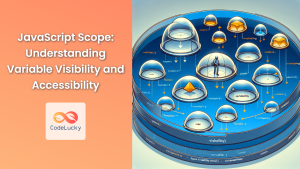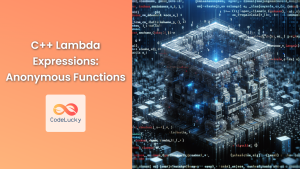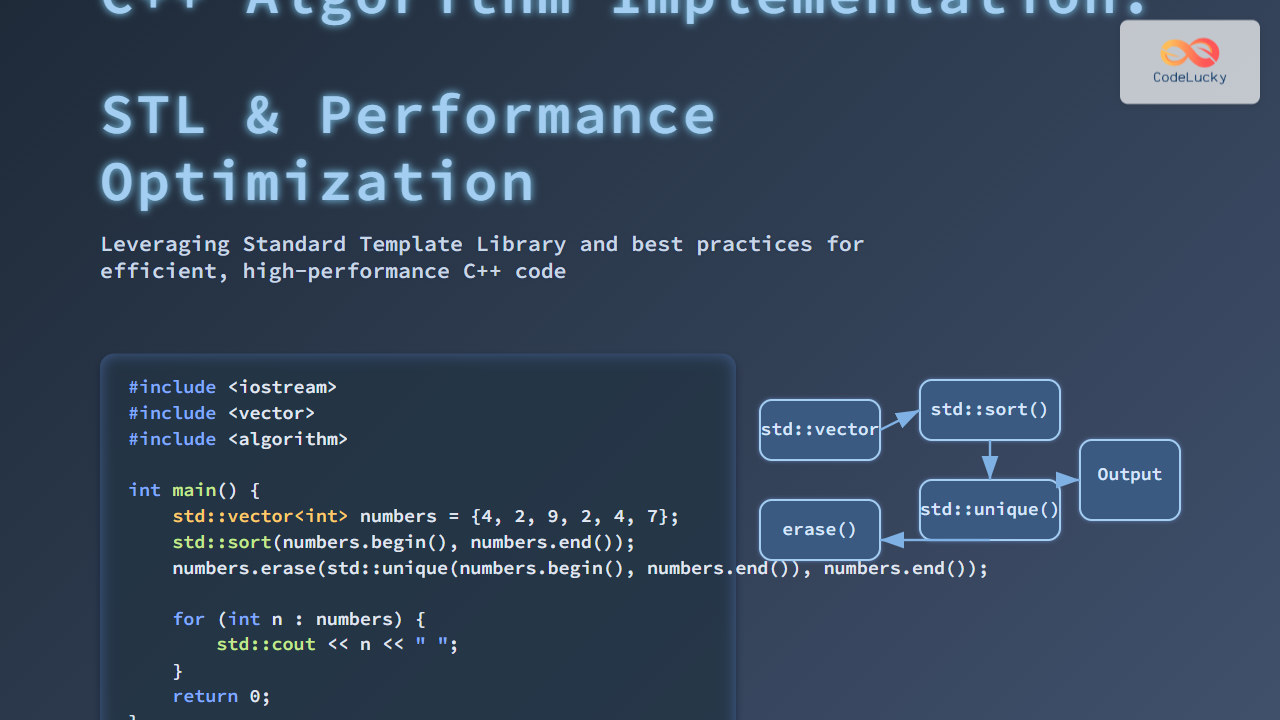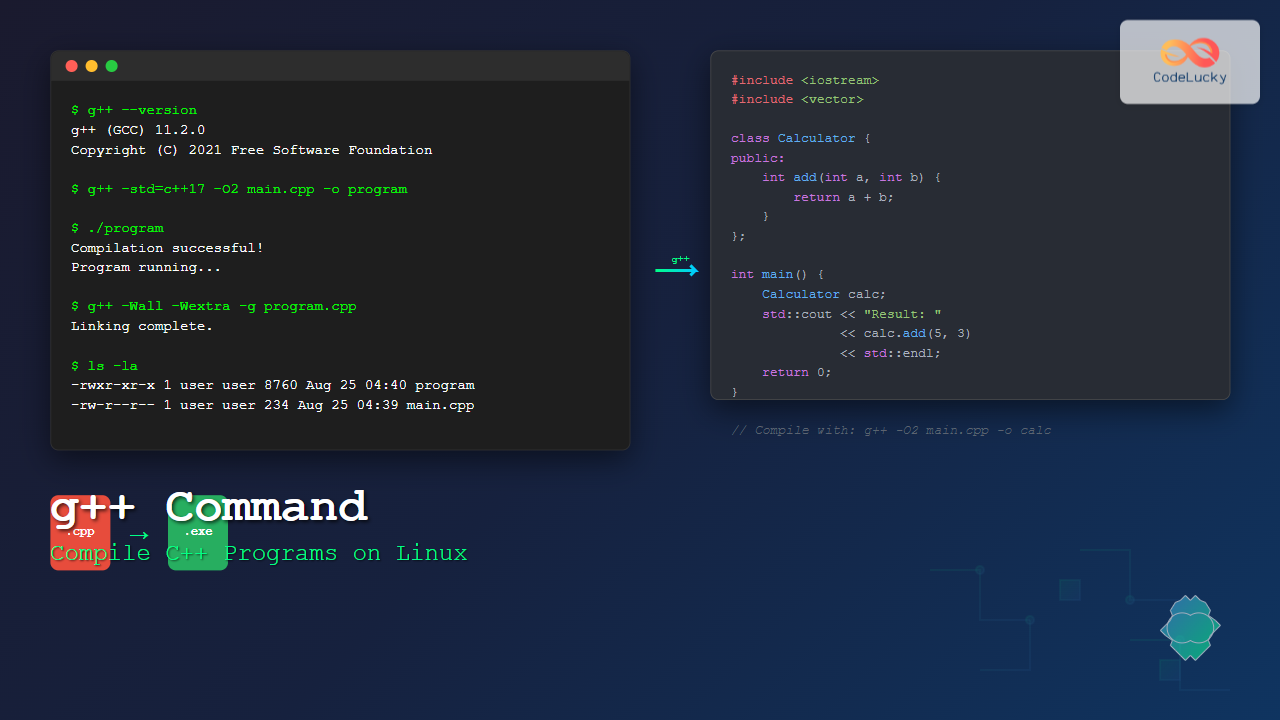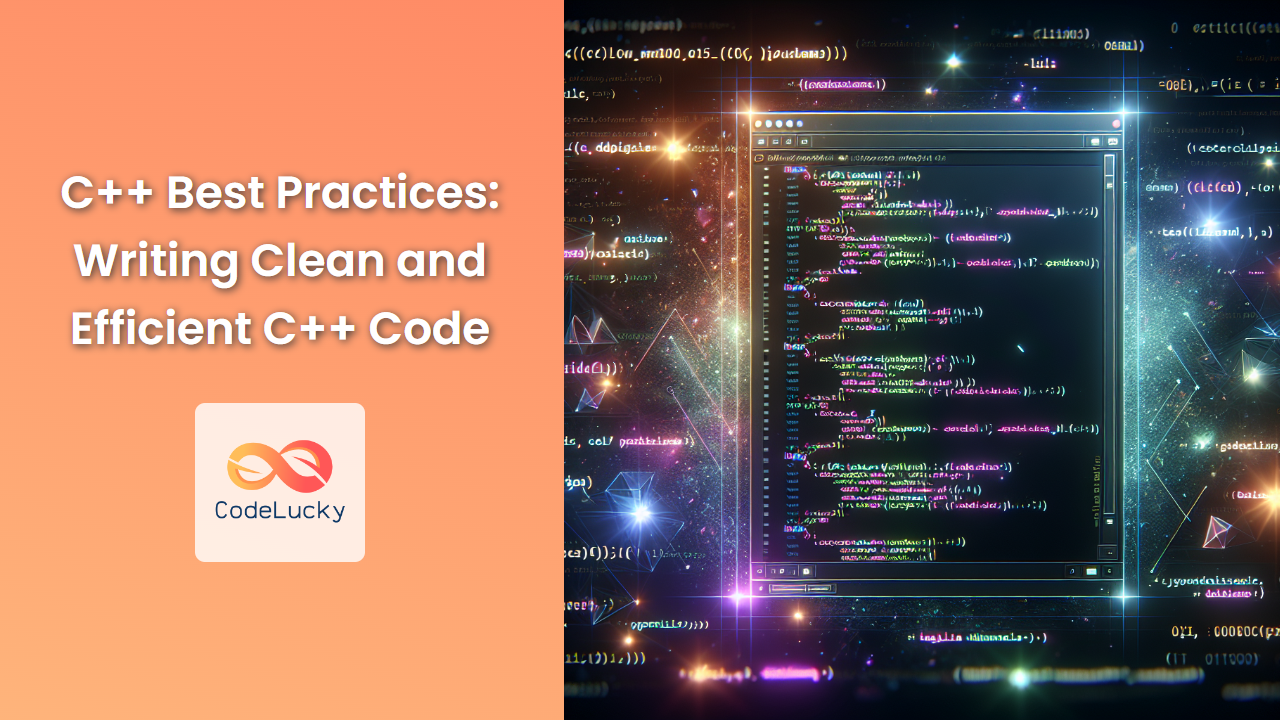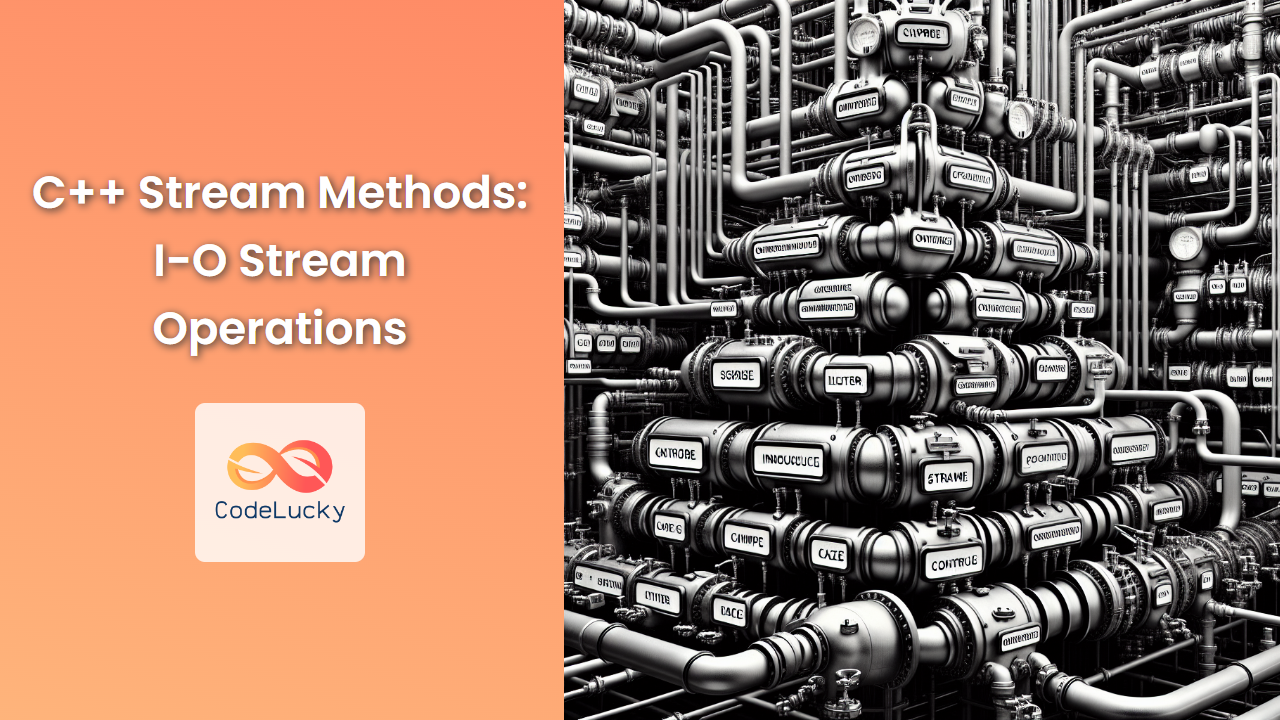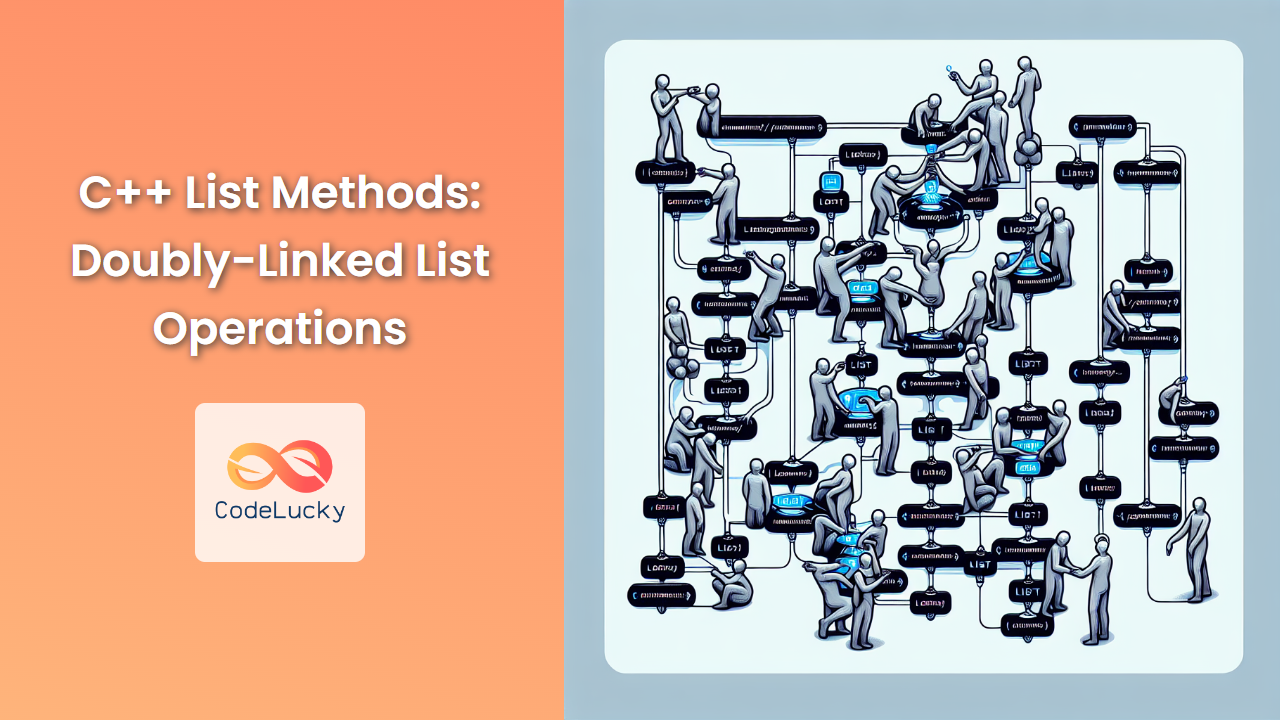In the world of C++ programming, understanding scope is crucial for writing efficient and bug-free code. Scope defines the visibility and lifetime of variables, functions, and objects within a program. It's the foundation upon which we build our code structure, ensuring that our variables are accessible where they need to be and hidden where they shouldn't be seen.
What is Scope in C++?
Scope in C++ refers to the region of the program where a named entity, such as a variable or function, can be accessed. It determines the visibility and lifetime of these entities.
🔍 Key Point: The scope of a variable is the part of the program where the variable is visible and can be used.
There are several types of scopes in C++:
- Global Scope
- Local Scope
- Function Scope
- Class Scope
- Namespace Scope
- Block Scope
Let's dive into each of these scopes with practical examples.
1. Global Scope
Variables declared outside of any function or class have global scope. They can be accessed from any part of the program after their declaration.
#include <iostream>
int globalVar = 10; // Global variable
void printGlobal() {
std::cout << "Global variable inside function: " << globalVar << std::endl;
}
int main() {
std::cout << "Global variable in main: " << globalVar << std::endl;
printGlobal();
globalVar = 20;
std::cout << "Modified global variable: " << globalVar << std::endl;
return 0;
}
Output:
Global variable in main: 10
Global variable inside function: 10
Modified global variable: 20
In this example, globalVar is accessible both in the main() function and the printGlobal() function. It can be modified from anywhere in the program.
⚠️ Warning: While global variables can be convenient, they should be used sparingly as they can lead to naming conflicts and make code harder to maintain.
2. Local Scope
Variables declared inside a function have local scope. They are only accessible within that function.
#include <iostream>
void localScopeExample() {
int localVar = 5; // Local variable
std::cout << "Local variable: " << localVar << std::endl;
}
int main() {
localScopeExample();
// Uncommenting the next line would result in a compilation error
// std::cout << localVar << std::endl;
return 0;
}
Output:
Local variable: 5
Here, localVar is only accessible within the localScopeExample() function. Trying to access it in main() would result in a compilation error.
3. Function Scope
Function scope applies to labels. Labels are the only elements with function scope, and they can be used anywhere within the function in which they are declared.
#include <iostream>
void functionScopeExample(int n) {
if (n < 0) {
goto errorHandler; // We can use the label before its declaration
}
std::cout << "Number is non-negative: " << n << std::endl;
return;
errorHandler:
std::cout << "Error: Number is negative" << std::endl;
}
int main() {
functionScopeExample(5);
functionScopeExample(-3);
return 0;
}
Output:
Number is non-negative: 5
Error: Number is negative
In this example, the errorHandler label has function scope and can be used anywhere within the functionScopeExample() function.
4. Class Scope
Class scope refers to the visibility of class members. The class members (data and functions) are accessible within the class and, depending on their access specifiers, may be accessible outside the class as well.
#include <iostream>
class MyClass {
private:
int privateVar = 1;
public:
int publicVar = 2;
void printVars() {
std::cout << "Private variable: " << privateVar << std::endl;
std::cout << "Public variable: " << publicVar << std::endl;
}
};
int main() {
MyClass obj;
obj.printVars();
std::cout << "Public variable from outside: " << obj.publicVar << std::endl;
// Uncommenting the next line would result in a compilation error
// std::cout << obj.privateVar << std::endl;
return 0;
}
Output:
Private variable: 1
Public variable: 2
Public variable from outside: 2
In this example, privateVar is only accessible within the class methods, while publicVar can be accessed both inside and outside the class.
5. Namespace Scope
Namespaces provide a way to group related identifiers (functions, classes, variables) under a name, helping to avoid naming conflicts.
#include <iostream>
namespace Math {
const double PI = 3.14159;
double circleArea(double radius) {
return PI * radius * radius;
}
}
namespace Physics {
const double G = 9.8; // Acceleration due to gravity
double fallingObjectVelocity(double time) {
return G * time;
}
}
int main() {
std::cout << "Circle area: " << Math::circleArea(5) << std::endl;
std::cout << "Falling object velocity after 3 seconds: " << Physics::fallingObjectVelocity(3) << std::endl;
return 0;
}
Output:
Circle area: 78.5398
Falling object velocity after 3 seconds: 29.4
Here, PI and circleArea() are in the Math namespace, while G and fallingObjectVelocity() are in the Physics namespace. This organization helps prevent naming conflicts and improves code readability.
6. Block Scope
Variables declared inside a block (enclosed by curly braces) have block scope. They are only accessible within that block.
#include <iostream>
int main() {
int outerVar = 10;
{
int innerVar = 20;
std::cout << "Inside block - outerVar: " << outerVar << ", innerVar: " << innerVar << std::endl;
}
std::cout << "Outside block - outerVar: " << outerVar << std::endl;
// Uncommenting the next line would result in a compilation error
// std::cout << "innerVar: " << innerVar << std::endl;
return 0;
}
Output:
Inside block - outerVar: 10, innerVar: 20
Outside block - outerVar: 10
In this example, innerVar is only accessible within the inner block, while outerVar is accessible both inside and outside the block.
Variable Lifetime
The lifetime of a variable is closely related to its scope. Here's a quick overview:
- Global variables: They are created when the program starts and destroyed when the program ends.
- Local variables: They are created when the function is called and destroyed when the function returns.
- Static local variables: They are created when the program starts but are only accessible within the function. They retain their value between function calls.
Let's see an example demonstrating variable lifetime:
#include <iostream>
void demonstrateLifetime() {
static int staticVar = 0;
int localVar = 0;
staticVar++;
localVar++;
std::cout << "Static variable: " << staticVar << ", Local variable: " << localVar << std::endl;
}
int main() {
for (int i = 0; i < 3; i++) {
demonstrateLifetime();
}
return 0;
}
Output:
Static variable: 1, Local variable: 1
Static variable: 2, Local variable: 1
Static variable: 3, Local variable: 1
In this example, staticVar retains its value between function calls, while localVar is reinitialized to 0 each time the function is called.
Scope Resolution Operator (::)
The scope resolution operator :: is used to specify the scope of a variable or function. It's particularly useful when you have naming conflicts or when you want to access a global variable that's shadowed by a local variable.
#include <iostream>
int x = 10; // Global variable
int main() {
int x = 20; // Local variable
std::cout << "Local x: " << x << std::endl;
std::cout << "Global x: " << ::x << std::endl;
return 0;
}
Output:
Local x: 20
Global x: 10
Here, we use ::x to access the global x variable, even though it's shadowed by the local x variable.
Best Practices for Managing Scope
- 🎯 Minimize global variables: They can lead to naming conflicts and make code harder to maintain.
- 🔒 Use the smallest scope possible: Declare variables in the smallest scope where they're needed.
- 📦 Use namespaces: They help organize code and prevent naming conflicts.
- 🏷️ Use meaningful variable names: This helps avoid confusion, especially when dealing with different scopes.
- 🔍 Be aware of variable shadowing: When a local variable has the same name as a variable in an outer scope, it shadows the outer variable.
Conclusion
Understanding scope in C++ is fundamental to writing clean, efficient, and bug-free code. It helps you manage the visibility and lifetime of your variables, leading to better organized and more maintainable programs. By mastering the concepts of global, local, function, class, namespace, and block scopes, you'll be well-equipped to handle complex C++ projects with confidence.
Remember, the key to managing scope effectively is to keep your variables as localized as possible, use namespaces to organize your code, and be mindful of variable shadowing. With these principles in mind, you'll be writing more robust C++ code in no time!
Happy coding! 🚀👨💻👩💻







